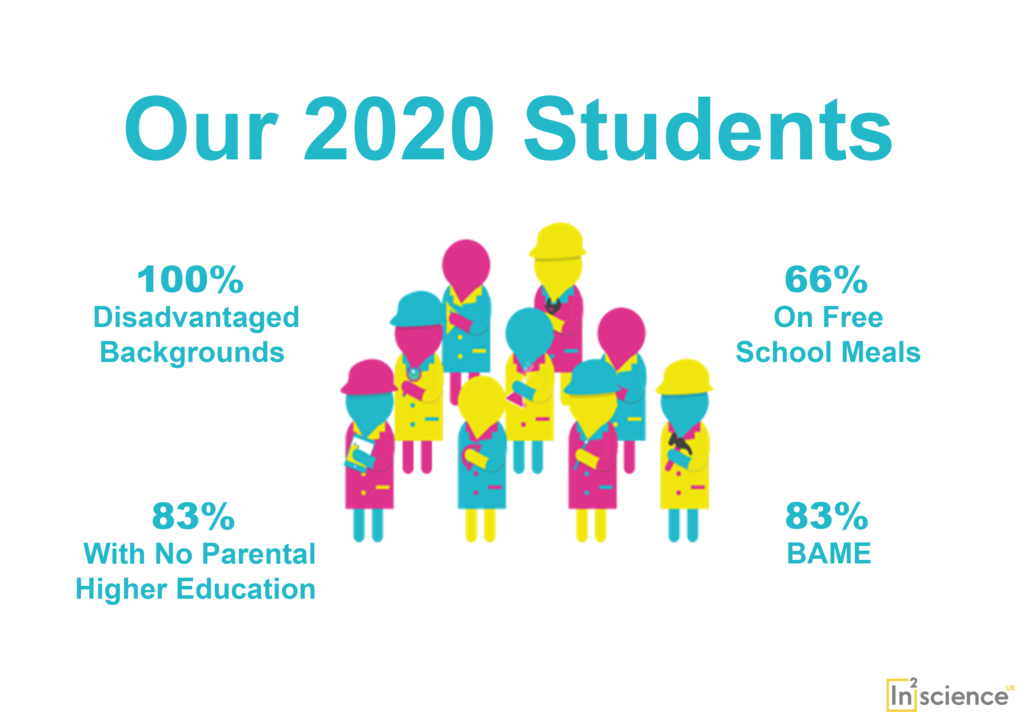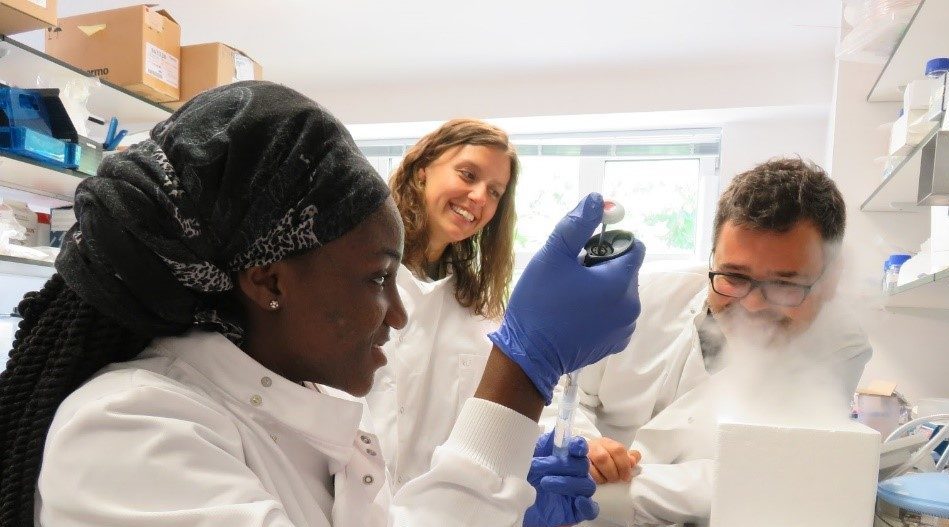The UK is at the forefront of research. From engineering and biomedical sciences to sociology and education researchers advance the frontiers of our knowledge essential in understanding and solving the world’s problems. The tireless work of the research community beyond a doubt have improved the health of our citizens, our environment, the education of our young people and ultimately our society. As a result of these great efforts, the UK is able to attract the greatest minds with research teams full of bright PhD students and postdocs from around the world. There is much to celebrate about UK research and innovation.
However, recent events across the world and at home including the outbreak of COVID-19 and the publication of The Social Mobility Commission Report (2018/19) highlights the health, education and career inequality within our communities and asks the question-does our research community reflect the communities they serve?
Socio-economic background
The socio-economic background of researchers has been difficult to address for the simple reason that we cannot see a person’s economic background and unlike gender and ethnicity, this data isn’t collected by employers, especially universities and research centres. However, in December 2017 to investigate access to professions, The Social Mobility Commission used the UK Labour Force Survey, to provide the most comprehensive analysis of social mobility to date and identified which professionals were most open and which most closed. (Friedman et al., 2017). With 64,566 participants the paper showed that some sectors were particularly dominated by people from affluent backgrounds and closed to those from working-class backgrounds. These included journalism, medicine, life sciences and academia which the paper stated as closed professions, dominated by the privileged few. It appears that research unlike a number of more accessible professions is following the same projection of social mobility in the UK which has stagnated over the last for years at all stages from birth to work (Social Mobility Commission, 2018-2019).

Are from working class backgrounds
Ethnic diversity
In September 2019, Leading Routes published a report ‘The Broken Pipeline: Barriers to Black PhD Students Accessing Research Council Funding’ showing that only 1.2% of research council funded studentships went to Black or Black Mixed students. Further research from the UK Council for Graduate Education’s BAME Participation in Postgraduate Research Working Group has published the first edition of a thematic bibliography that focuses on BAME participation in postgraduate education. This report highlights that research into factors impacting the progression of BAME students and programmes aimed to support BAME students which the working group state is lacking.
Gender diversity
Research from the Wellcome Trust shows that across UK research, 44% of senior lecturers in bioscience are female but just 16% reach professor level. Leading research centres and departments have implemented a number of initiatives that aim to support women progress in research. What is interesting is that the implication of female diversity at the Professorship level, particularly in biomedical research, has long been discussed with research papers and books published highlighting the health inequality of women. Why are heart attacks in women missed? Why is there five times more research into erectile dysfunction which affects 19% of men versus premenstrual syndrome affecting 90% of women? Why don’t we have a male contraceptive pill?
Together this highlights why diversity is so very important. If researchers are from homogenous backgrounds with respect to sex, ethnicity, social-economic backgrounds and neurodiversity there will be a gap in the knowledge, health, environment, education and policy of those from under-represented backgrounds. If we want to improve aspects of all of our lives, improving diversity in research is an effective first step. This will also have a secondary benefit in opening up opportunities to innovate and push the boundaries of knowledge in areas that remain untouched.
What are the barriers to entering research?
There are many barriers to entering postgraduate research and these can be individual barriers but having worked with underrepresented young people for the last decade three main barriers feel most prominent. The first being simply-you can not aspire to what you do not know exists. If you have never met a researcher and been involved in research, you will never know such a career exists let alone the career pathway and the aspiration to progress into that career. The second is the feeling that you belong. If you don’t feel comfortable in an environment it is unlikely to pursue opportunities to progress into that career. Finally, to get onto a PhD programme having research experience is a prerequisite. For most, this means completing a £10,000 masters degree or working in a research lab in the summer for free. These opportunities are closed to many groups in society and represent a large barrier.
What are the solutions?
In2scienceUK was founded by a community of researchers with an aim to improve diversity in STEM with research the biggest theme. The programme addresses each of these barriers by leveraging the passion and expertise of researchers to give young people from underrepresented backgrounds an inspiring insight into research as well as provide positive role models. Through summer work placements students gain access to cutting edge research, role models and inspirational opportunities. Students receive a travel bursary to ensure they can access the opportunity. This enables them to see how exciting research is. It breaks down the stereotype of researchers and that they are not all geniuses. The programme also delivers career and higher education workshops which include information and guidance on PhD programmes.

When we ask students what they enjoy most about the programme it is always without exception meeting the researchers and speaking to them. Our external evaluation shows that after the programme there is a statistically significant increase in young people feeling that ‘scientists and engineers are like them’. They have developed resilience, they feel confident and now know what research really is. As a result of this experience, we find many of our students who were placed at a university apply there for an undergraduate degree or postgraduate qualifications.
The third barrier – having a masters qualification and longer period of research experience is a difficult barrier to address because it is structural. That is why we are delighted to be launching a new programme, In2research in collaboration with the Wellcome Centre for Human Neuroimaging, UCL to support young people from under-represented backgrounds onto postgraduate research. Cassandra Hugill, Public Engagement Manager at the Wellcome Centre for Human Neuroimaging said: “We are excited to be working with the In2scienceUK team to help to break down the numerous barriers that the brilliant and passionate In2scienceUK alumni students may face when pursuing a career in academia. Through the In2research programme, we hope to be able to help to diversify research, while learning how to be more inclusive in what we do and how we do it.”
We should remain optimistic that we can solve the problem of diversity in research. The community is creative, energetic and problem solvers. In2scienceUK is built on support from researchers wanting to give back and make the difference and improve social mobility and diversity in STEM. Together we can make a positive impact and improve our society for all.
To learn more about In2scienceUK contact Rebecca McKelvey at [email protected]
